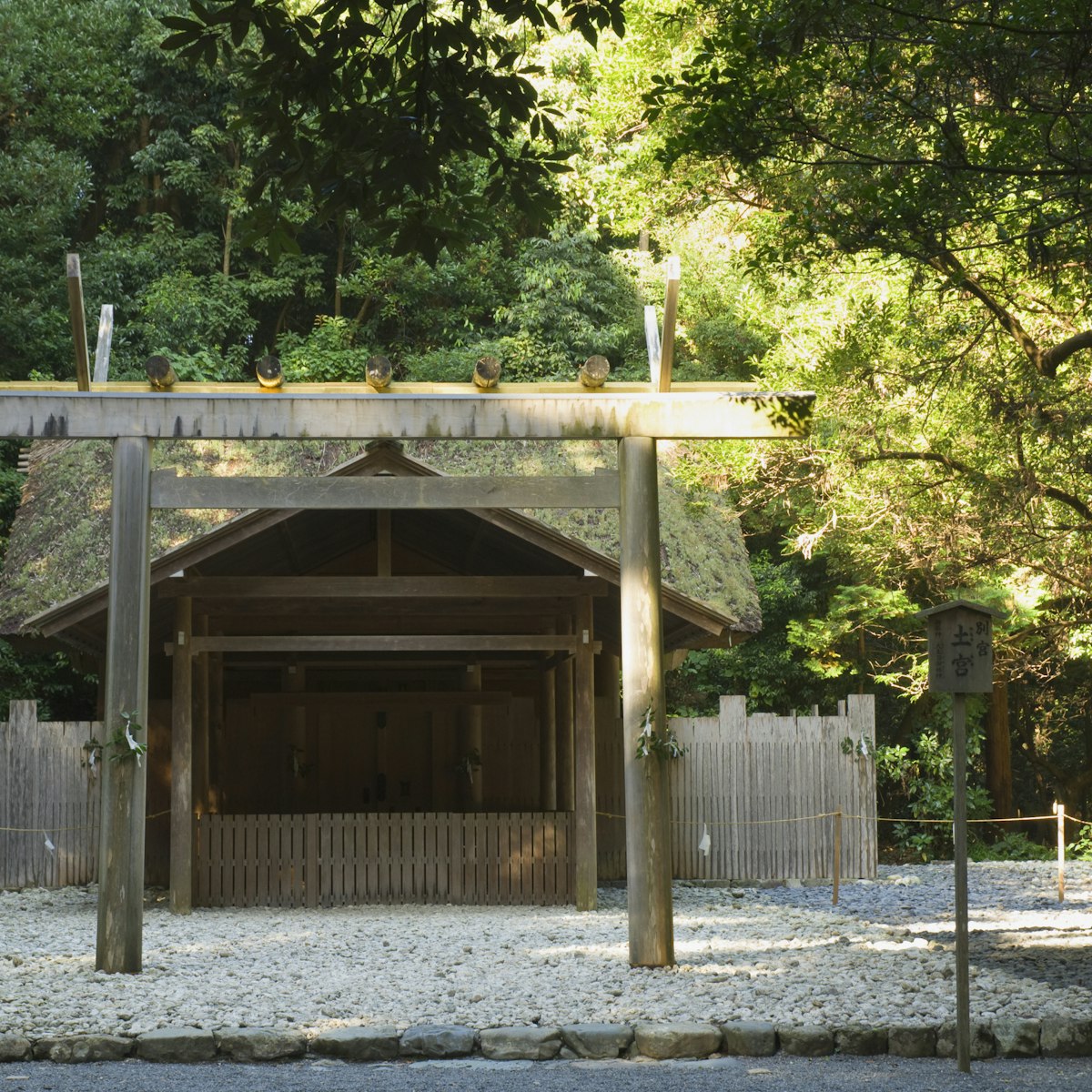Ise-jingū's inner shrine is dedicated to the sun goddess, Amaterasu-Ōmikami, considered the ancestral goddess of the imperial family and guardian deity of the Japanese nation. Naikū is particularly revered because it houses the sacred mirror of the emperor, one of three imperial regalia – the other two are the sacred beads – at the Imperial Palace in Tokyo, and the sacred sword, at Atsuta-jingū in Nagoya).
At the entrance to the precincts you'll cross the bridge Uji-bashi over the crystal-clear river Isuzu-gawa. The path continues along an avenue lined with towering cryptomeria trees, under several torii, to the Goshōden, the main shrine building (which is fenced off). Working your way back, pay a visit to some of the smaller shrines on the grounds, such as the Mishine-no-Mikura (where rice offered to the gods is stored), whose architecture resembles that of the off-limits main shrine.

